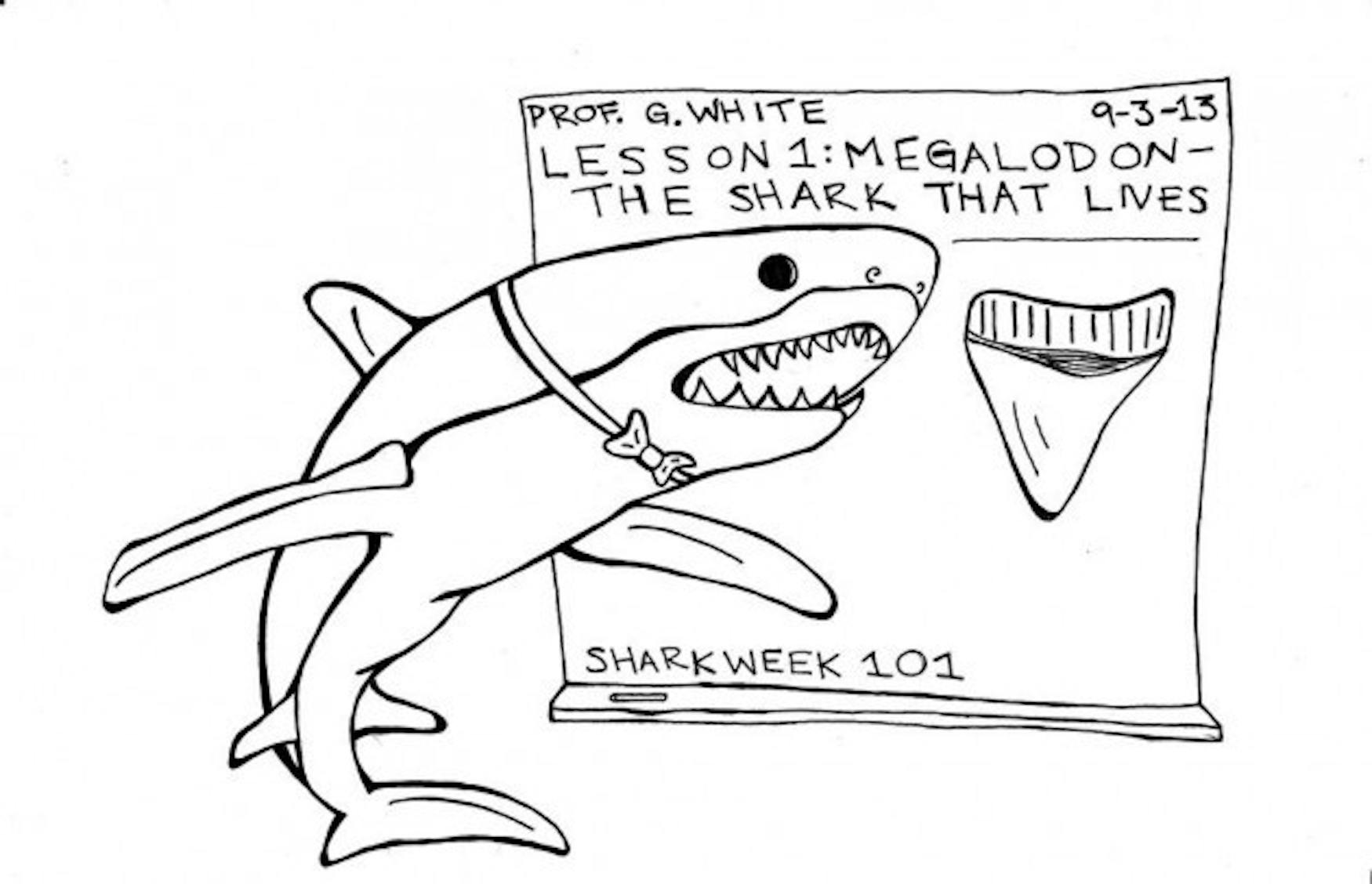Shark Week provides educational opportunity
My favorite week of the year isn't Christmas break or spring break; it's Shark Week. Yes, like countless other Americans, I tune into Discovery Channel in early August to watch shows about sharks, shark attacks and ocean science for an entire week. In the words of Tracy Jordan from NBC's 30 Rock, I live every week like it is Shark Week.
Most years, Shark Week is a bit of a joke for my father, my sister and I. We spend the whole week glued to the TV, listening to Andy Samberg talk about sharks, watching the Mythbusters team disprove the way they killed the shark in Jaws and generally not getting anything educational or intellectual out of it. In the back of my mind, I realize that Shark Week, like all other Discovery Channel shows, in theory is supposed to be somewhat educational, but if I have learned anything, I didn't really appreciate it. It never occurred to me that a program I enjoy watching could be a serious teaching tool.
This year though, Shark Week was different for me. I spent the previous week on scuba diving in Mexico, where I had seen sharks a couple times while diving on the reefs.
While I was on the sofa, watching scientists, survivors, experts and enthusiasts talk about sharks as well as environmentalism, overfishing and the dangers of urban legend, it really hit home for me. While I am not a marine biologist or an especially passionate environmental activist, I do love the ocean and respect the animals that make it their home, including sharks.
Sharks are often considered among the most deadly creatures on the planet. While they can be very dangerous and have been known to attack humans, sharks kill less people per year than vending machines, mosquitoes, deer and dogs.
On average, only five deaths around the world per year are from shark attacks. It is estimated for every person killed per year by a shark, 20 million sharks will be killed by humans, be it for delicacies such as shark fin soup, fishing by bottom trawling or from environmental impacts and pollution.
Shark Week is not just a week devoted to ridiculous and horrifying shark videos and attack testimonies; it is a week dedicated to promoting awareness about sharks and the environment while busting certain stereotypes, like that sharks are crazed killers. Even the shows about shark attacks only further drive this point home. Watch any interview that is included on Shark Week with certain shark attack survivors and scientists, and they will say they do not hate the shark for what happened, that the ocean is the shark's home, not ours.
Many people see Shark Week as humorous, something to make fun of and enjoy and not take seriously.
I used to be one of them, and still do find Shark Week entertaining. However, I now also appreciate how Shark Week can actually be used as an educational tool for the general public, which often is ignorant or misinformed on the lifestyle of sharks. There are stereotypes that sharks are fierce, violent killers who are perfectly willing to snack on unsuspecting humans. After all, according to the Discovery Channel's website about Shark Week, the program is designed to inform people about sharks and provide information on how to save sharks from overfishing and other issues they face.
Shark Week is an educational tool that is accessible to many people and makes people interested in a very serious issue.
Perhaps if other TV networks and TV programs can emulate this model, issues like famine, sexual slavery, child soldiers and others can get the attention they need. It is easy to ignore major problems in our world by watching an enjoyable television channel instead of the news or something informative. However, if the channels people love to watch, be it TLC or Sy-Fy, have yearly shows in the style of Shark Week, I do believe the American people can have better awareness of some very serious issues.
After all, who is going to say no to a week of television that teaches you while still being fun to watch?
*



Please note All comments are eligible for publication in The Justice.